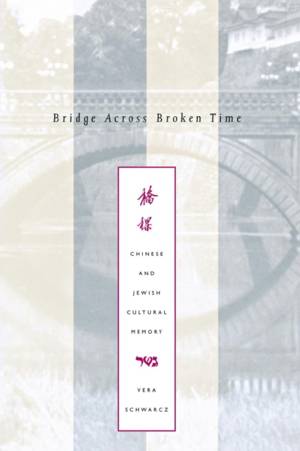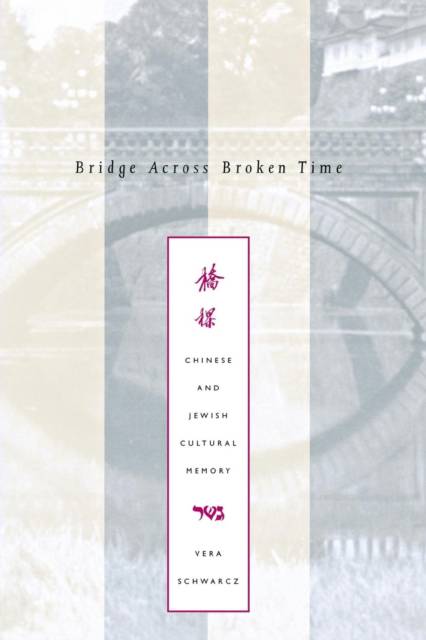
Bedankt voor het vertrouwen het afgelopen jaar! Om jou te bedanken bieden we GRATIS verzending (in België) aan op alles gedurende de hele maand januari.
- Afhalen na 1 uur in een winkel met voorraad
- In januari gratis thuislevering in België
- Ruim aanbod met 7 miljoen producten
Bedankt voor het vertrouwen het afgelopen jaar! Om jou te bedanken bieden we GRATIS verzending (in België) aan op alles gedurende de hele maand januari.
- Afhalen na 1 uur in een winkel met voorraad
- In januari gratis thuislevering in België
- Ruim aanbod met 7 miljoen producten
Zoeken
€ 57,95
+ 115 punten
Omschrijving
In this remarkable book, Vera Schwarcz explores the meanings of cultural memory within the two longest surviving civilizations on earth. The author of previous books that the New York Times Book Review called "moving" and Jonathan Spence termed "subtle, elegiac, and elegant," Schwarcz finds a bridge between the vastly different Chinese and Jewish traditions in the fierce commitment to historical memory they share. For both, a chain of remembrance has allowed tradition to endure uninterrupted from ancient times to the present; for both, the transmission of remembrance and the bearing of active witness to the significance of the past are high moral values. From her unique standpoint as China scholar and daughter of survivors of the Holocaust, Schwarcz uncovers resonances between the narratives of Chinese intellectuals recovering from the trauma of the Cultural Revolution and the halting tales of her own parents.
Focusing on the transmission of cultural memory in these two cultures, the author examines how metaphor becomes an aid to memory, the role of personal remembrance in public commemorations, and the process of healing historical wounds. Combining poetry and historiography, oral interviews and archival documents, this book brings to life the struggles of Chinese and Jewish survivors who managed to cultivate memory through inimical times and preserve the continuity of their long traditions.
Focusing on the transmission of cultural memory in these two cultures, the author examines how metaphor becomes an aid to memory, the role of personal remembrance in public commemorations, and the process of healing historical wounds. Combining poetry and historiography, oral interviews and archival documents, this book brings to life the struggles of Chinese and Jewish survivors who managed to cultivate memory through inimical times and preserve the continuity of their long traditions.
Specificaties
Betrokkenen
- Auteur(s):
- Uitgeverij:
Inhoud
- Aantal bladzijden:
- 246
- Taal:
- Engels
Eigenschappen
- Productcode (EAN):
- 9780300209785
- Verschijningsdatum:
- 10/06/2014
- Uitvoering:
- Paperback
- Formaat:
- Trade paperback (VS)
- Afmetingen:
- 156 mm x 234 mm
- Gewicht:
- 385 g

Alleen bij Standaard Boekhandel
+ 115 punten op je klantenkaart van Standaard Boekhandel
Beoordelingen
We publiceren alleen reviews die voldoen aan de voorwaarden voor reviews. Bekijk onze voorwaarden voor reviews.









